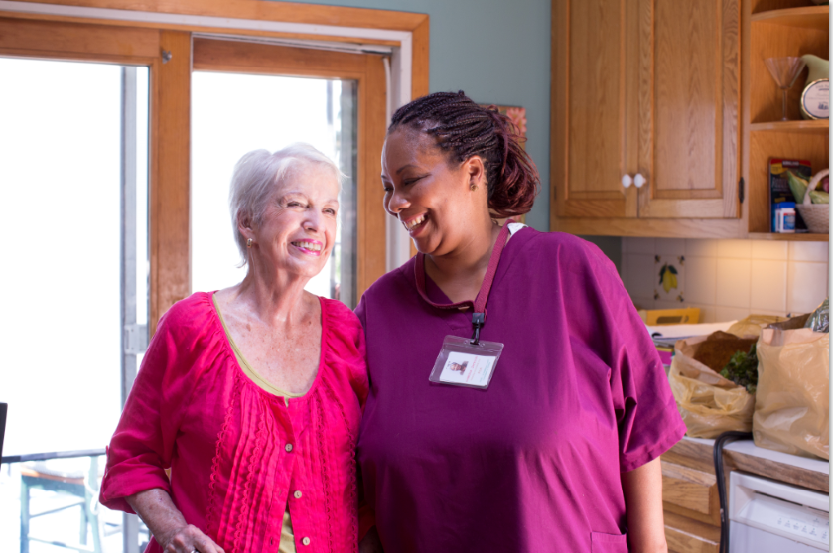- HOME
- SERVICES
- WHERE TO BEGIN
- LOCATIONS
- RESOURCES
- HEALTH PLAN SERVICES
- CAREERS
- EMPLOYEES

Should Home Health Care Be Part of Your Preventive Care Plan?
“I feel fine.” Living in the moment, wanting to enjoy the good health we have now is understandable. “I don’t want to think about that right now” is a common (and understandable) sentiment when it comes to planning for the “what ifs?” in life.
We should enjoy our health and make the most of it without anxiety over what could happen. But an important step in eliminating that anxiety is to make sure that there’s already a plan in place so you don’t have to worry. By doing so, you’ll know what resources are available for you or a loved one to continue enjoying life in the event “what if” becomes reality.
The Department of Health and Human Services estimates that 70% of those now turning 65 will require some form of long-term care. In the US, annual spending on long-term care costs families, Medicaid and Medicare hundreds of billions of dollars. Long-term care is not only an expensive proposition, but it can be daunting when it comes to choosing the right care for your needs.
Learning about the advantages of home health care now can help you and your family prepare, as there will be a plan in place for managing care at home when the need arises. If, for example, you know that you’ll need hip or knee replacement surgery, and are also aware of the fact that patients have seen recovery benefits from home health care, you can effectively plan your at-home recovery. Planning for your at-home needs following surgery in advance can help make the process less stressful.
Implementing home health care early in managing a health issue (rather than waiting) can help reduce the chances of a condition getting worse. Just as a home visit from a physician is advantageous for patients, having a nurse or health care aide visit a patient’s home on a regular basis (based on need) can help patients stay well for longer.
As explained by the National Planning Council in regard to physician house calls: “A very important benefit is that a physician can see the environment in which his patient is living and have a better understanding of how that environment may affect his patient's health. By seeing it first-hand, he can make recommendations for care that would have been impossible in his office. In essence, the doctor learns much more about a patient in her home and he can achieve a personal connection that would have been difficult to establish in the office. The ultimate outcome of a house call is that the doctor can provide a greater degree of holistic medicine.”
Home health care aides who are present in the home to assess medical needs will have greater insights into working with your or your loved one’s medical team in developing the right at-home recovery plan. The personal connection between the home health care aide and the people they visit in the environment they feel most comfortable in is a key differentiator, setting home health care apart from other models of health care.
The Oregon Department of Human Services notes: “It is important to provide health care in a way that maximizes an individual's independence and promotes their wishes.” A key part of this is ensuring that patients are happy in their environments. A poll of US adults over 50 shows that 80% say they prefer to remain at home as they age.
Additionally, the Oregon Department of Human Services also notes: “All persons, whether active or frail, can benefit from health promoting behavior and aggressive preventive care. Preventive care includes making sure nutrition, exercise, immunizations and routine screening tests are attended to.”
Home health care aides can play a vital role in preventive care. Whether a patient is managing diabetes, looking to implement a new and safe exercise routine, or have help in returning home from a hospital stay (as examples), a home health care aide can help manage daily tasks, monitor health and implement diet and exercise plans for you or a loved one.
Have questions about home health care? Our Starter Guide can help. You can also subscribe to our Newsletter to begin receiving more information about Premier. To speak to us now about the Premier difference, please call 1-866-648-5119.
